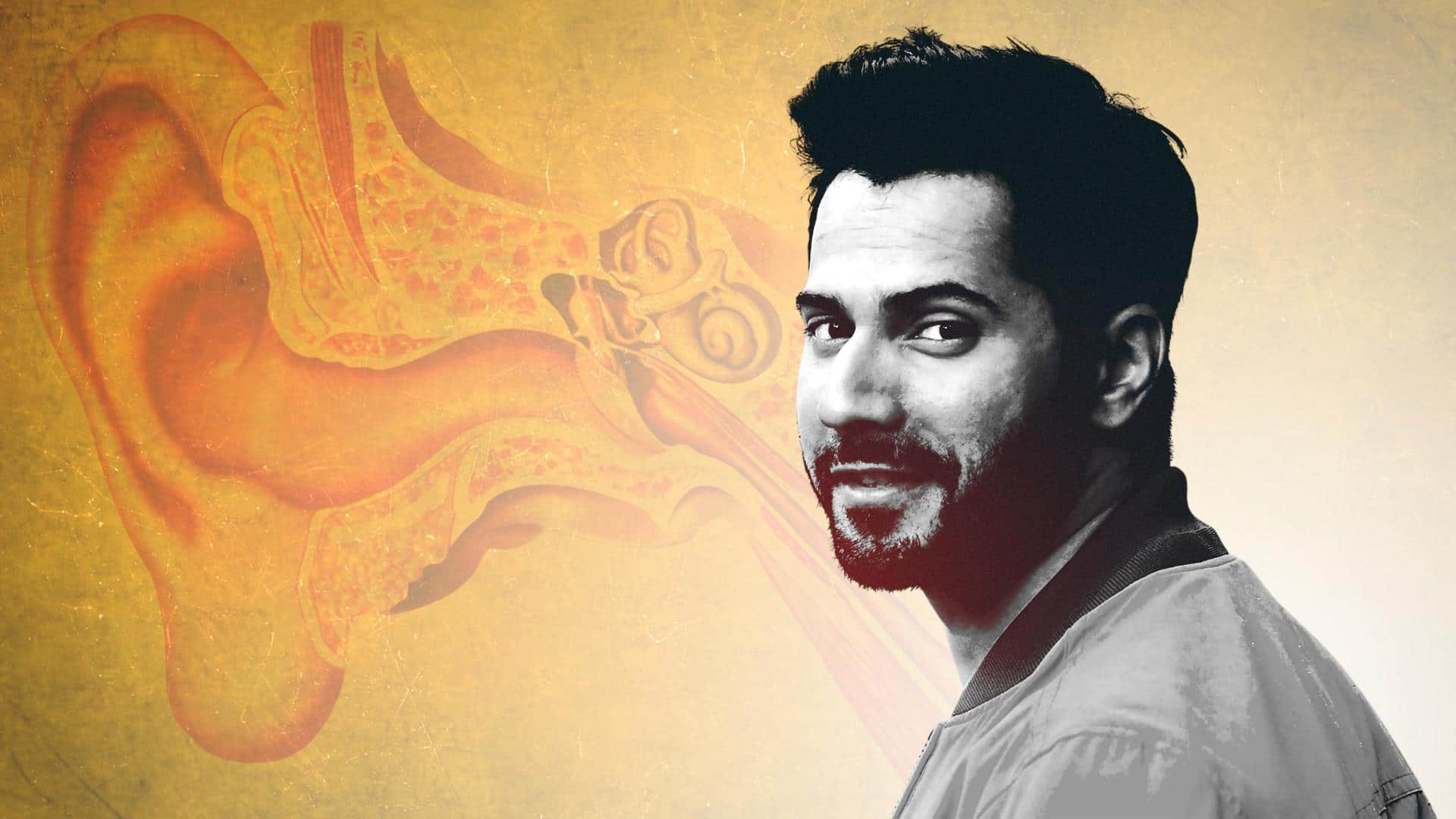
Varun Dhawan diagnosed with vestibular hypofunction: Know about the condition
What's the story
Bollywood actor Varun Dhawan recently revealed in an interview that he had been diagnosed with a heterogenous condition called vestibular hypofunction. It is an imbalance problem when the balance system in your inner ear does not function correctly. Recently, Dhawan shared an update on his health on Twitter in which he confirmed that he is doing "much better." Here's more about the condition.
Context
Here's what our expert says
The inner ear consists of the cochlea, utricle, saccule, and three semicircular canals. It has two sensory functions: hearing and balance. Cochlea deals with hearing. Balance, a complex function, is handled by inputs from the utricle and saccule for linear movements and the three semicircular canals for angular movements. Both ears work in tandem to inform the brain of the position of the head.
Twitter Post
Here's what Dhawan tweeted
To everyone who has been concerned I would like to share I am doing much better with the help of yoga, swimming, physio and a change in lifestyle. Getting sun is the most important. Above all the blessings of Bhagwan. 💪💪💪
— VarunDhawan (@Varun_dvn) November 7, 2022
Condition
What is vestibular hypofunction?
The inner ear is a complex system of cartilage, bone, and a network of semi-circular canals filled with liquid. Certain movements cause the fluid flow patterns to change. A sensor in your ear sends information to the brain about these changes which help you maintain balance. Vestibular hypofunction causes the inner ear to dysfunction. Thus it ends up sending error messages to the brain.
Causes
Causes of this condition
Vestibular hypofunction can be caused due to a number of factors including any prevailing or previous ear condition. It can be caused due to head injury, blood clots in the brain, or aging. It can be caused due to inner ear problems like poor circulation in the ear and calcium debris in semicircular canals. It usually occurs in people between 30-50 years of age.
Symptoms
Symptoms of the condition
The most common symptoms of vestibular hypofunction are dizziness, feeling off-balance, disorientation, blurred vision, falling or stumbling, and feeling like the world is spinning. Symptoms like nausea, dizziness, anxiety, fear, changes in the heart's rhythm, vomiting, and diarrhea can also occur in advanced stages. It can be diagnosed through hearing, vision, imaging, and posturography tests conducted by your ENT surgeon.
Treatment
Treatment for the condition
Bringing some positive changes in your lifestyle including diet and sleep schedule can help ease some symptoms of the condition. Epley maneuver, a special series of exercise movements of your chest and head also helps treat the condition. Vestibular rehabilitation or balance retraining therapy can also help reduce the symptoms. Regular exercise, practicing yoga, and avoiding smoking and alcohol can help prevent vestibular hypofunction.